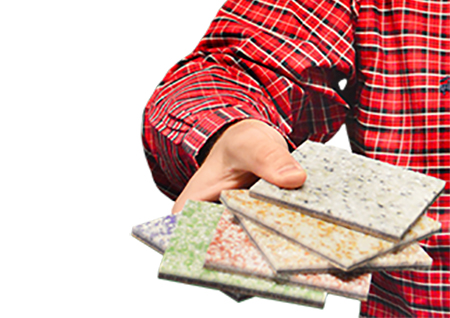Free Sample
GET MY FREE SAMPLE
for commercial use only*


Silicone-Epoxy Hybrid Floor vs Everlast® Floor
A silicone-epoxy hybrid doesn't have near the bond strength of a pure epoxy system. Silicone is a popular elastomer used in creating organic rubbers. Acrylic epoxy is a rigid substance prone to cracking. In order for the epoxy resin to be more malleable and less prone to cracking, silicone elastomers were added in to the mixture.
Silicone-Epoxy Hybrid Floors are soft and lack adhesion
The hybrid is much softer than epoxy. Experts say that the silicone can add to the strength, which it can, but at the expense of the adhesion. Silicone-Epoxy Hybrid resins are commonly used in forming stronger-than-glass substrates. This is what is used in applications such as in aquariums. But adhesion isn't necessary in these applications like it is in flooring.
Silicone-Epoxy Hybrid Floors are thermoplastic
Silicone products are also thermoplastic. Under low temperatures, the silicone maintains its elasticity without hardening. They can endure very high temperatures, but in those conditions, they become more pliable to warping. As a floor coating option, this can be a detriment, especially in areas subjected to extreme heat.
Silicone-Epoxy Hybrid Floors are a bad idea
It would be best to have seamless flooring that does not succumb to rigid pressure and silicone is far too pliable of a material for a stable floor. The advancement in technology has pushed too far in the other direction by adding a silicone elastomer to the resin. Epoxy flooring such as the Everlast Floor provides more secure footing and less distortion than a silicone-epoxy coated floor.
Everlast Epoxy Systems Inc doesn't use any silicones to make the floor flexible. We use flexibilizers that actually improve the flooring system rather than take away from it.
Practical uses for silicone

